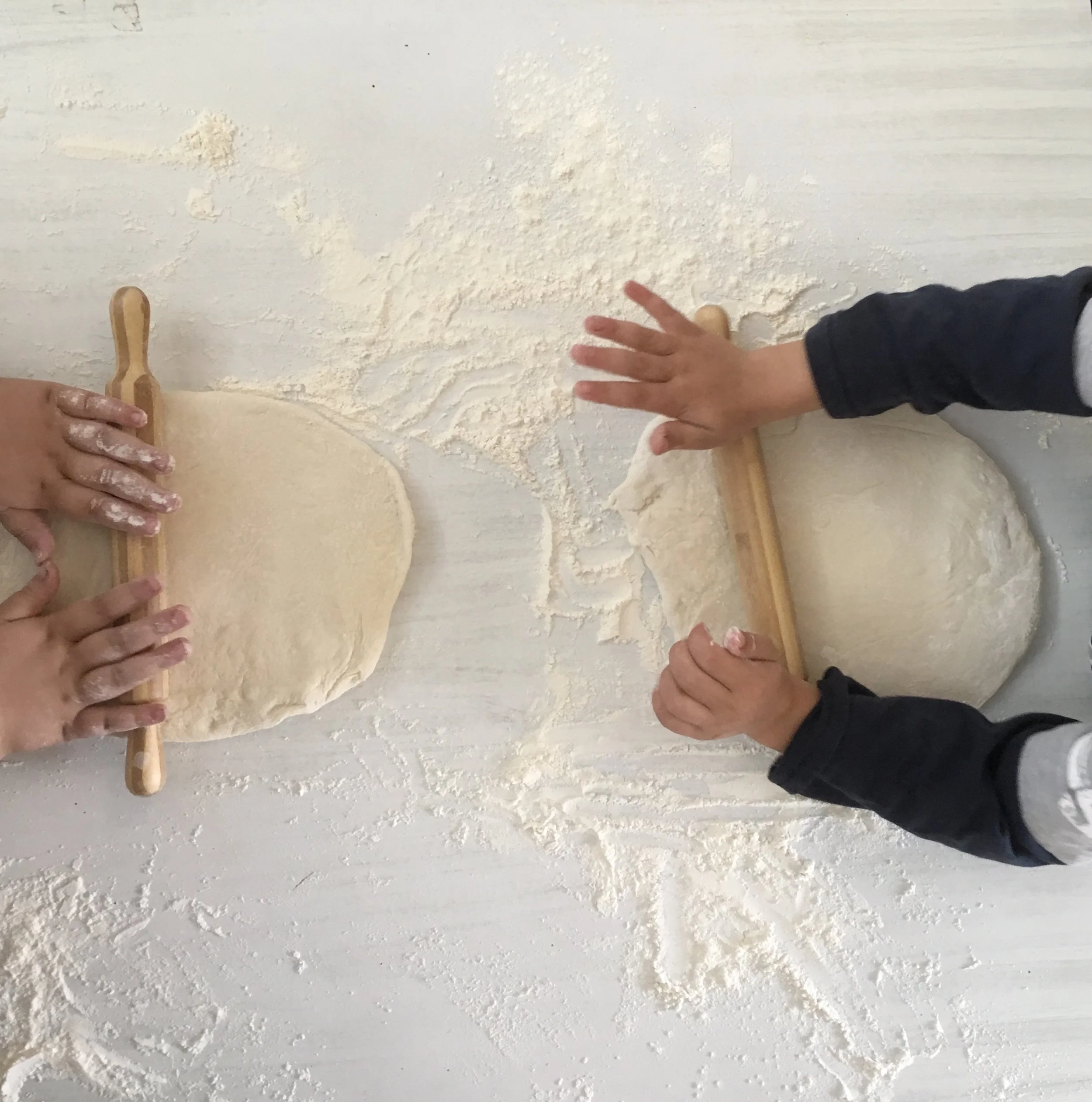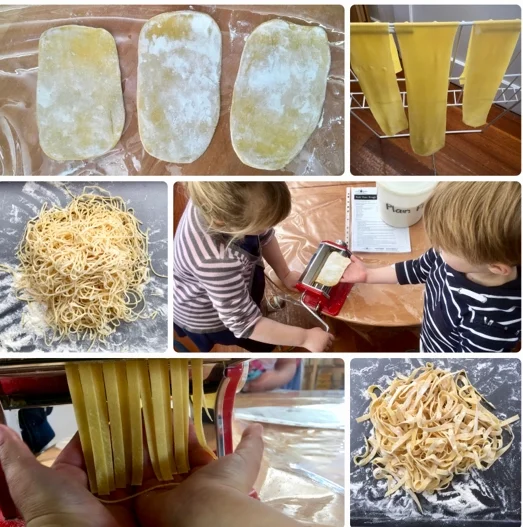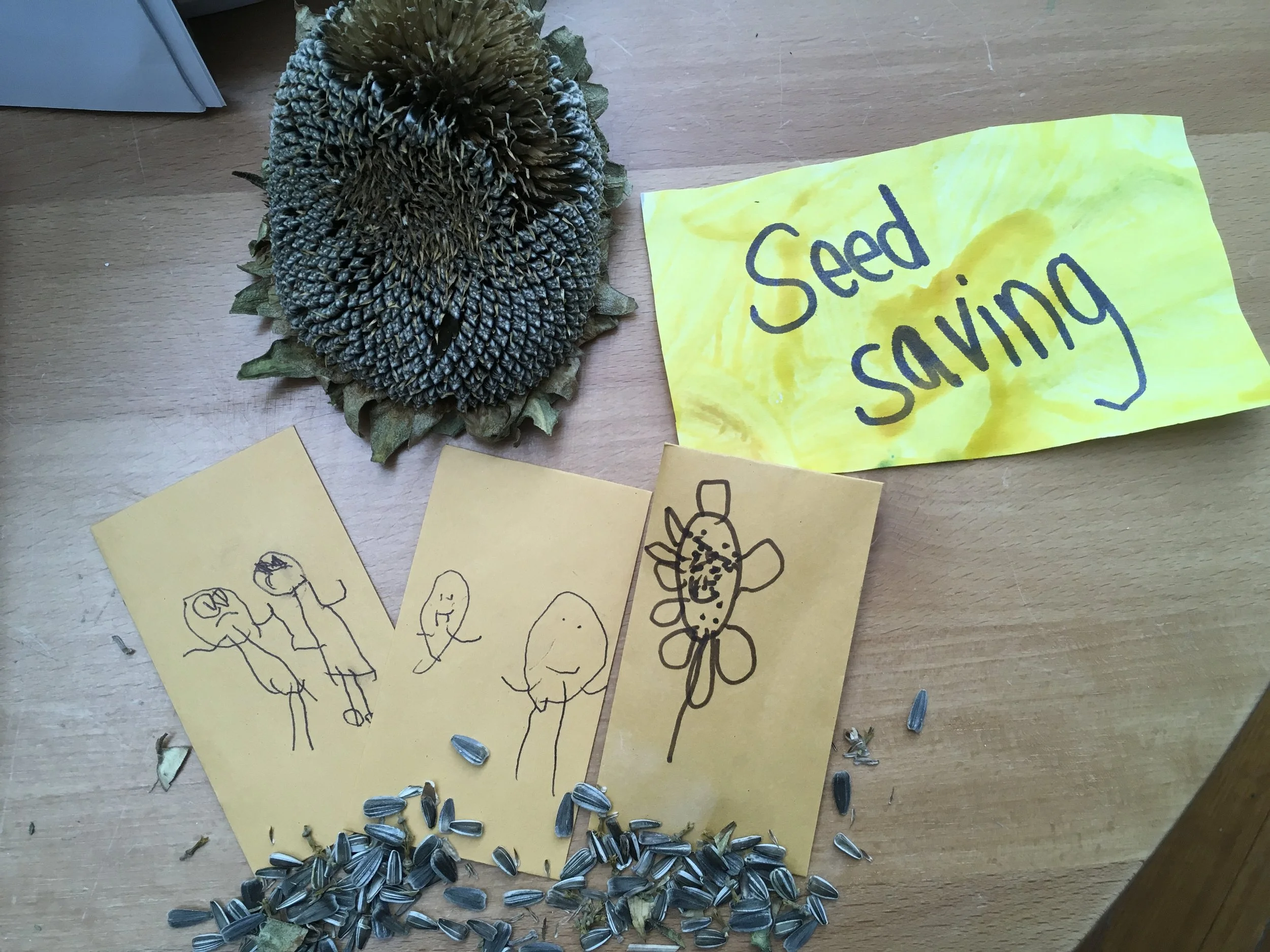Stephanie Alexander Kitchen Garden Foundation
Innately Curious Kids
Part of what drives us as humans is what makes us feel good. The other leading motivator is that which piques our interest; that which incites curiosity and intrigue. For a child, these hankerings give them intent purpose.
It is natural for a child to be happy with simplicity at they learn about the world around them. With time, societal messages draw a shadow over our innate guide, our naturalness. We are told what healthy options we should choose. Super foods become an ever-moving conveyor belt of click bait. Fast food advertisements leak into our subconscious and during busy times, which are often, they are summoned forth to be dinner. We try to return to simple times as our waistbands expand, and sedentary days become the norm for many of us.
The Stephanie Alexander Kitchen Garden Program has allowed children and parents to build healthy bonds with food, nature and one another using one key ingredient - enjoyment.
Renowned chef and food writer Stephanie Alexander had a stroke of genius some years ago when launching the Kitchen Garden Program. It was about connecting children with the outside world and one another in a pleasurable way. Ah-huh! A food philosophy that makes sense.
“Our model is very much dependent on education and empowerment and pleasure,” said the Stephanie Alexander Kitchen Garden Foundation CEO Josephene Duffy.
Pleasure is a word that comes up throughout discussion with Duffy. It is the enjoyment factor that drives this program. The enjoyment of being outside, connecting with something real and tangible, watching something grow- that puts everyone in a good mood.
Californian Gully Kindergarten in Maryborough, Victoria
“Part of the fundamental process of the program is a sensory experience and the hands-on learning. The sensory experience for us is really using those physical senses- smelling, tasting, feeling, listening, watching,” said Duffy.
“It’s in the garden and in the kitchen that children really become engaged. They learn by doing, they learn by their own innate curiosity, following their own questions and figuring things out for themselves.”
Something sticks from the self-learning and self-discovery. During the kitchen classes, the children have a guide, but a great deal of self-taught learning ensues, through the pleasure and curiosity mechanisms.
“That way, we think that the learning is more effective,” said Duffy.
“It becomes much more powerful for them and it actually helps them better adopt literacy, numeracy and other required learning, because they’re acting out of curiosity and a sense of fun, not being sat down and forced to absorb rote learning.”
Duffy has been with the Foundation since the year 2008 and thinks of her job as very much a privilege. The positive effects of this program have strong ripple effects, that tumble out, improving the lives of individuals and the collective.
Parents relate how their child, who doesn’t usually want to go to school, is eager. Their child isn’t comfortable in the school environment but loves the garden space and calms down. Their child loves presenting a dish to their friends. There is an ease in the children that are part of the program.
“We are told all the time, ‘My child who’s usually doesn’t want to go to school or isn’t comfortable in this environment loves the garden space and calms down’,” said Duffy.
“In other cases, they may not engage with the education that they are being involved with at all, so it is quite incredible the difference that this contextual learning can make.”
Nature based learning helps children to learn, and it assists adults to think with more clarity, to find calm. As we become increasingly distanced from life on the land, it seems like that is just the remedy we need to shed some complexity.
“We have an amazing story from a family at one of our schools in Victoria, Whitehorse Primary, whose child is autistic and didn’t want to touch any kind of food that wasn’t beige,” explains Duffy.
“Being involved in the program and not being pushed to eat food that he didn’t want to but growing it- and again being invested and committed to it and engaged in the growing process changed his mind set into wanting to eat that food.”
Californian Gully Kindergarten in Maryborough, Victoria
“That whole family, the dynamic changed, and they started being able to garden together, they started being able to cook together, they started being able to eat together.”
Duffy said that the program brings about a new wave of enthusiasm in the parents, too.
“We hear that parents are able to volunteer their time in kitchen garden classes, suddenly being able to engage with the school in a way that they never were before.”
Food habits change during the program. The children are not told what to eat. It is about showing them how pleasurable the food is. Some adults have not had these experiences, getting their hands into the dirt and watching their food grow. There are many valid and complex reasons why people eat the way they do. They may not have experienced how pleasurable it can be to grow their own food and eat well. It may not register with many people where their food comes from.
“We firmly believe that part of the problem is that people don’t know where their food comes from, they are not actually engaged with the process of producing that food and the process of putting it into their mouths,” said Duffy.
“They are putting things into their bodies that they don’t know what it is, or where it’s from. When we give people that experience of food production, they are much more interested in what they are cooking and what they are eating.”
Duffy said that once people understand the energy, the commitment and the dedication that it takes to produce food, they are much more empathetic to growers, producers and farmers.
“That is how we really contribute to improving the food system because they are seeing what it takes, they are seeing that if they don’t look after their soil their plants they are not going to grow, and the kids want their plants to grow, they are really invested in it. They love it.”
“They come to school every day and check out their seedlings. They have to protect them organically from pests, they have to put up structures and think about it so when they do harvest the produce they are so invested in making sure that it is going to taste great that they don’t go back.”
The Stephanie Alexander Kitchen Garden Foundation is now working with around 2000 schools and early childhood centres across Australia, each in various stages of program development. “They love it!” said Duffy and that sentiment is echoed in the teachers and parents.
Californian Gully Kindergarten in Maryborough, Victoria
“We get a range of responses such as, ‘I don’t believe that my child has come to school and eaten broccoli, I don’t believe it’ and their teacher will say, ‘well, they eat it every other week’.”
“Parents tell us that their children come home and say ‘Can I turn the nature strip into a vegetable garden? Can I come grocery shopping with you and tell you what’s in season, to not buy those oranges from Argentina’. They say, ‘Okay we can have pizza, but can we have a salad with it, too - I’ll make it’.”
“Parents say sometimes that the program has changed their family life.”
A common remark from busy families is that they don’t have the time or the money to put into buying and preparing an organic, fresh meal. It is too hard. Duffy said that the Foundation is keen to show families that eating well need not be expensive or time consuming. “We also really want to bust this myth that good food is expensive, it’s not, especially when you know how to grow it and make it from scratch.”
“Yes, we are all bombarded with all kinds of messages and some kids don’t have a chance to be able to make informed decisions when all the messages they are receiving are ‘eat this’. We don’t focus on ‘eat this because it’s healthy’ or ‘eat this because it’s nutritious’- we very much focus on eat this because you’ve made it really delicious and yummy and you want to eat it.”
The Foundation is working on a program for pre-schoolers.
“We will have things like a parsley patch that babies will be able to crawl through and have that sensory experience and know that is a thing for them in their everyday activity. We will have rip-and- tear salads for young kids. It is very easy to grow leaves in a centre or in a small greenhouse.”
“We can have herbal teas, where they can grow their own herbs and make warm teas where they can experiment with flavour and figure out for themselves what they do and don’t like. We also make sure that that activities and the program models that we use for early childhood educators will speak to the early years development framework so that the educators know that when they are delivering a program like this they are doing it for a multitude of reasons and it ticks a whole lot of boxes for them but it’s not something added on or another responsibility that they have to take on.”
This program is designed to hold children in good stead for life. Duffy was reminded of this with her own children, wanting them to grow up knowing and valuing good food.
“You win friends through good food, you can budget on good food, you can travel the world and experience different cultures based on an interest in food.”
“It’s a huge challenge for those people who grow up in a food poor environment. We try to encourage them to come into this philosophy in the most fun way, in the most pleasurable way, in the most loving way possible because we know for a fact that telling people to do stuff because it’s good for them doesn’t work.”
“What we want to do is create a food culture and food community that is really enjoyable, and celebrate food.”
Afterall, we depend on it to survive, we depend on the outside world, and our connection to it and one another.
Article by Sinead Halliday
Photos courtesy of Californian Gully Kindergarten in Maryborough, Victoria. Thank you to for sharing these wonderful images with us.
Top image courtesy of Pexels.










